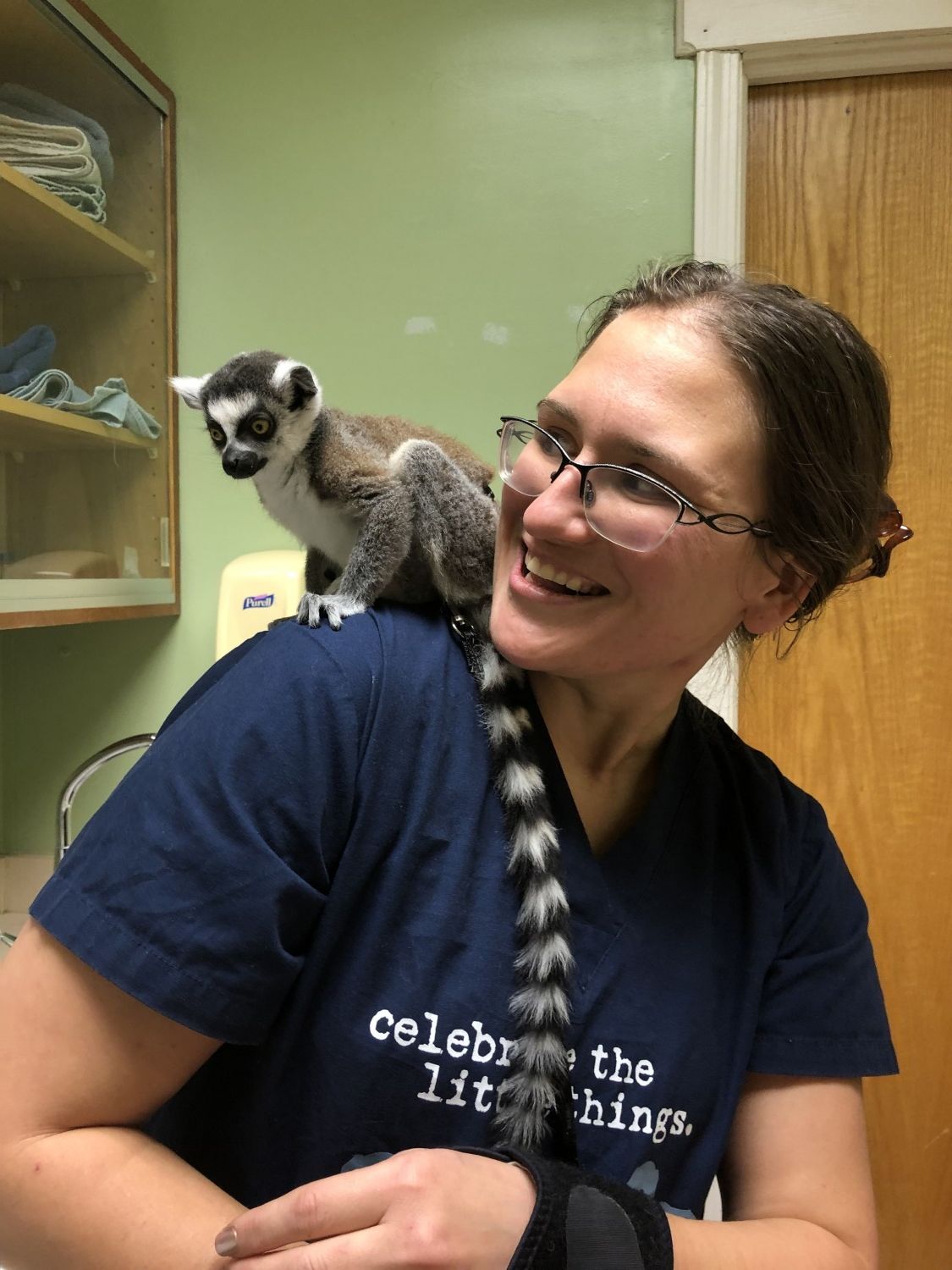
Animal care is a growing field. You can find jobs for nearly everyone, from veterinarians and zookeepers. Animal care workers provide food, water, medical attention, and support animals in many settings. Animal care workers might specialize in one type of animal such as horses or reptiles. Wildlife biologists are one example of a career that focuses on conservation. They study the impact of human activities upon the environment.
Animal care workers often work at animal shelters or veterinary clinics. They provide care and supervision to animals. They may also clean and bathe animals.
They might be required to assist in the euthanasia of animals in some cases. Others with prior experience in this area of work may be required to assist in administrative tasks like answering questions from the public and screening potential adopters.

Many veterinarian careers involve exotic animals. This makes them highly lucrative. A veterinarian can also treat and improve people's health by studying diseases and researching ways to reduce them. A bachelor's degree is required in order to become a licensed veterinarian. A state licensing examination is required in order to be licensed as a veterinarian.
There are also a number of jobs involving aquatic animals. These might include work in a zoo/aquarium or marine park. You could also have an aquatic career that involves diving in the ocean. Depending on the job you have, you may be required to look for signs such as illness or entrapment. You might also need to use scuba diving gear to observe the aquatic environment.
The demand to care for animals and other service workers will rise faster than average over the course of the decade. Each year, there are approximately 80,900 job openings in these fields. The result is that these workers will see an average 29 percent growth in their employment from now through 2031.
Although the jobs listed above may sound exciting, they are often physically demanding and mentally challenging. You may have to care for sick or distressed animals, as well as observe injured and abused animals. Good customer service skills are essential. You might need to offer calming advice, as you may be dealing with pet owners who are ill-informed and distraught.

A median annual salary for Zookeepers or other animal care workers is $24,780. Although they have many responsibilities, these people are also involved in education programs for visitors. Many zookeepers spend their time caring for young animals.
Veterinary technicians assist veterinarians in diagnosing and treating animal injuries and illnesses. These technicians are responsible to administer medication and perform medical tests. They must be knowledgeable about animal nutrition and able to handle animals in a humane manner. Additionally, they must be able to recognize zoonotic disease and have at least six months of animal handling experience.
It doesn't matter if you are a veterinarian or an animal care technician. You just need to have a passion about animals. These professionals can be found all across the United States.
FAQ
How much should I pay for a pet?
One good rule of thumb: Budget around $200-$300 per Month.
However, it varies based on where you live. You would spend $350 per Month in New York City.
Rural areas may require you to spend only $100 per month.
It is important to remember to purchase quality items, such as collars, leashes, toys, etc.
A crate is a great investment for your pet. This will keep your pet safe when he is being transported.
How can I determine if my dog is suffering from fleas
If you notice your pet scratching at its fur, licking itself excessively, or looking dull and unkempt, then chances are he/she may have fleas.
Flea infestation could also be indicated by redness or scaly skin.
For treatment, you should get your pet to the vet as soon possible.
What are three things that you need to consider before getting a cat?
Before you decide to buy a cat, be sure to answer these questions.
-
Are there any health issues in the cat?
-
Will the cat eat all my food, or will he?
-
Is it because I love cats or do I simply want a pet cat?
What kind of food should I feed my dog?
Your dog needs to be fed a healthy diet.
Protein-rich foods include beef, chicken, eggs, fish, and dairy products.
Other foods high-carbohydrate include fruits, vegetables (including bread), cereals, pasta, potatoes, rice, and beans.
Lean meats, poultry and fish are all low in fat, as well as nuts, seeds, whole grains and whole grains.
Before giving your dog different food types, always consult your veterinarian.
Is it a good idea to spay/neuter your dog?
Yes! Yes!
It does not only decrease the number unwanted puppies, but also reduces the likelihood of certain diseases.
There is, for instance, a greater chance of breast cancer in female dogs that in male dogs.
There is also a greater chance of testicular carcinoma in males than in females.
The spaying or neutering of your pet can also help to prevent her from having babies.
Statistics
- For example, if your policy has a 90% reimbursement rate and you've already met your deductible, your insurer would pay you 90% of the amount you paid the vet, as long as you're still below the coverage limits of your policy. (usnews.com)
- * Monthly costs are for a 1-year-old female mixed-breed dog and a male domestic shorthair cat less than a year old, respectively, in excellent health residing in Texas, with a $500 annual deductible, $5,000 annual benefit limit, and 90% reimbursement rate. (usnews.com)
- In fact, according to ASPCA, first-year expenses can sum up to nearly $2,000. (petplay.com)
- It is estimated that the average cost per year of owning a cat or dog is about $1,000. (sspca.org)
- Here's a sobering reality: when you add up vaccinations, health exams, heartworm medications, litter, collars and leashes, food, and grooming, you can expect a bill of at least $1,000 a year, according to SSPCA. (bustle.com)
External Links
How To
How do you choose the right name for your pet?
When you are considering adopting a pet into your family, it is one the most crucial decisions you will make. Names should reflect the personality and character of your pet.
It is important to consider how other people might refer to you - for instance, if they are going to be called by their name in conversation. Last, consider how you wish to be referred too. What do you prefer, for example, "dog" or pet?
Here are some tips and tricks to help you get going.
-
Name your dog a name that reflects its breed. If you know the breed (e.g., Labradoodle), look up the names associated with that breed. Or ask someone who knows dogs well to suggest a name based on the breed.
-
Take into account the meaning behind the name. Some breeds have names that are based on people or places. Others are nicknames. A Labrador Retriever, for example, was given the name "Rover" as he was always running around.
-
Consider what you would like to be called. Would you rather call your dog "dog", or "pet"? Do you prefer to call your dog "Puppy", or "Buddy?"
-
Be sure to include the name of the owner. It's sensible to give your dog an owner's name. But, don't limit yourself by limiting your family's names. Your dog could grow up to become a member of your family.
-
Many pets may have more than one name. A cat, for instance, could go by different names depending upon where she lives. At home, she could be called "Kitty Cat", but when visiting friends, "Molly". This is especially true for cats who live outside. They may choose to name themselves after the environment in which they live.
-
Be creative! There are no rules stating that you have to stick to one naming convention. Make sure you choose something memorable and unique.
-
Be sure to check that your chosen name does not already belong in the hands of another person or organization. This way you won't accidentally take someone else's identity.
-
Finally, remember that choosing a name for your pet isn't an exact science. Sometimes it takes time to determine whether a name is right for your dog. So keep trying until you find the perfect match!